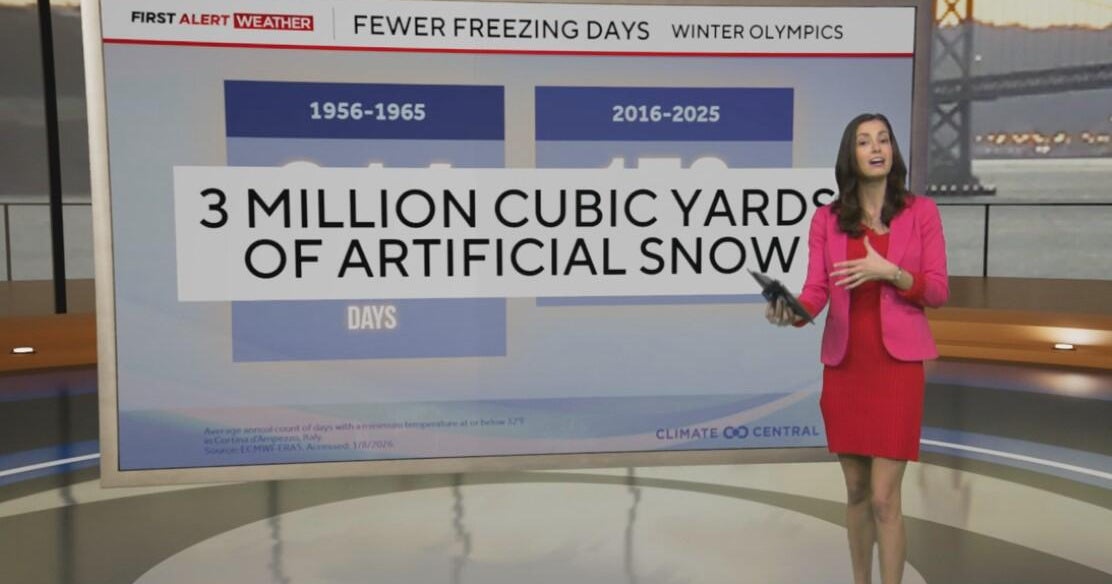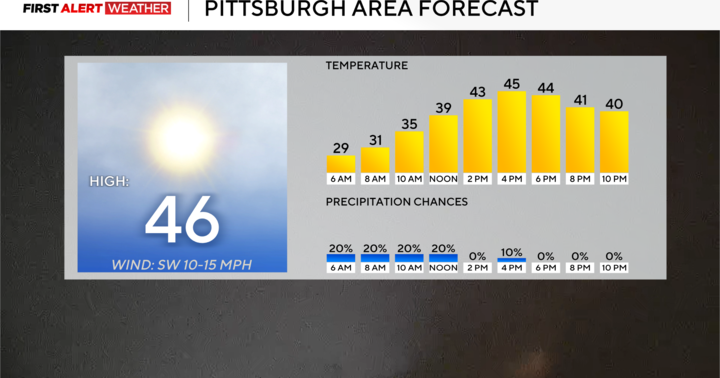Climate models have been impressively accurate for decades, study finds
Even the rather primitive climate computer models of the 1970s, 80s and 90s were impressively accurate, lending extra credibility to the much more advanced climate models of today. That's the conclusion of a paper released Wednesday in Geophysical Research Letters, a peer-reviewed science journal.
The study comes as climate skeptics continue to cast doubt on the reliability of climate models and question the validity of human-caused climate change overall.
"We often hear that 'models always overestimate warming' from those skeptical of climate change," says the paper's lead author Zeke Hausfather. But Hausfather says that's simply not true. "Climate models have by and large gotten things right. They haven't overestimated warming, but at the same time the warming we experienced isn't worse than we thought, it is what we thought it would be," he said.
Up until now, there has been relatively little work evaluating the performance of climate model projections with actual observations, or in layman terms, real-world outcomes. However, now enough time has passed since the first climate model projections were published, and the Earth has warmed enough, to be able to evaluate how well models performed.
The research team examined 17 climate models published between 1970 and 2007, with forecast periods ending on or before 2017. They used two criteria for their assessment. First, how well did the models predict future surface temperatures? Second, how well did the models react to increases in greenhouse gases?
Greenhouse gases, like carbon dioxide, are produced by the burning of fossil fuels. The physics are rather simple. These gases act like a blanket around the Earth, trapping heat inside, much like a greenhouse. The more heat-trapping gases we release, the thicker the blanket and the hotter the Earth's surface temperature gets.
While temperature is the most straightforward evaluation criteria, it doesn't paint a complete picture. That's because scientists couldn't possibly have known the exact amount of greenhouse gases humans would release over that period because that depends on human decisions, not physics. As a result, projections from models that factored in too much greenhouse gas were too warm. And models that underestimated greenhouse gases were too cool.
Even so, the climate models performed well when judged by temperature projections. These computer model projections were compared to five different observed temperature datasets from trusted sources like NOAA and NASA.
The team found that 10 of the 17 climate model projections showed results consistent with recent real world observations. Of the remaining seven model projections, four projected more warming than observed, while three projected less warming than observed.
But the researchers felt that measurement of accuracy needed refining. "It was important to us to try and distinguish errors in greenhouse gas forecasts from errors in model physics - something people confuse a lot," said Gavin Schmidt, co-author of the study and director of NASA Goddard Institute for Space Studies.
To remove this dependence on scientists estimating the correct levels of future greenhouse gases, the researchers evaluated model performance assuming actual greenhouse gas levels, not earlier estimates. This allowed them to truly assess how good the model's physics are, i.e. how accurate the model was at determining the degree of warming relative to increases in real-world greenhouse gases.
Using this criteria, the models performed even better – 14 of the 17 model projections were consistent with observed real-world surface temperatures.
Professor John Cook of the Center for Climate Change Communication at George Mason University studies the causes and effects of climate change denial. He says that years of misinformation directly targeting climate models has reduced public trust in climate science. He feels this new study helps set the record straight. "New research replicating and reaffirming what we already knew - that models are trustworthy - is both welcome and needed," he said.
"Climate misinformation can be divided into 5 categories: it's not real, it's not us, it's not bad, there's no hope, experts are unreliable," Cook said. "Attacks on the trustworthiness of science are the most common form of climate misinformation."
For instance, climate scientists and meteorologists often hear criticism like: "you can't even forecast tomorrow's weather, how can you forecast 30 years from now?" While most meteorologists would take issue with the premise, these are not apple to apple comparisons.
Forecasting how much snow will fall at your house tomorrow is a very specific item which requires incredible precision. However, projecting trends as climate models do, such as it will be approximately 2 degrees warmer on Earth by 2050 or will hurricanes be more intense in the future, is fairly simple, straight-forward physics.
For Hausfather, the evidence revealed by his research is clear. "The fact that early climate models got future temperatures broadly right is strong evidence that longer-term climate changes are predictable – and that they have been driven by increased atmospheric greenhouse gas concentrations in recent decades."



